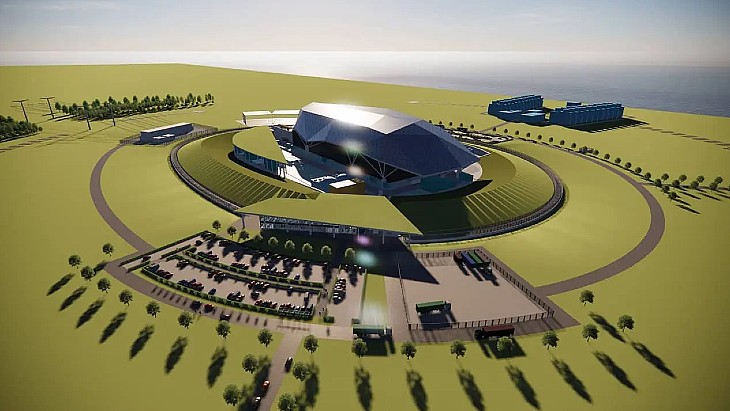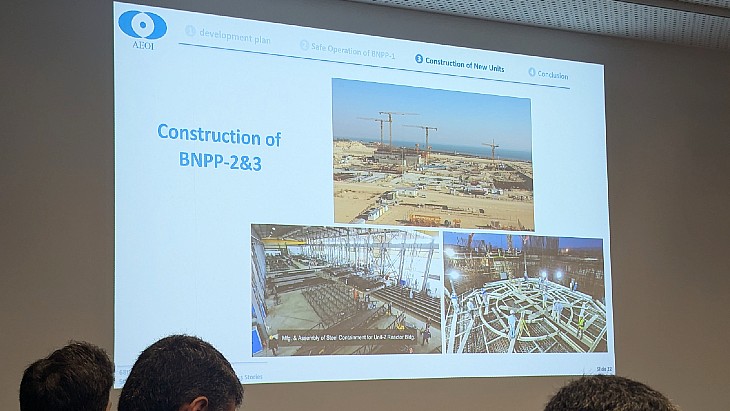Terrestrial Energy unveils SMR licensing plans
Terrestrial Energy USA announced today it had informed the US Nuclear Regulatory Commission (NRC) of its plans to license a small modular reactor (SMR) in the USA. Terrestrial said it intends to start "pre-application interactions" with the regulator this year and to make its licensing application in late 2019.
The NRC recently published a letter from Terrestrial responding to the agency's Regulatory Issue Summary (RIS) published on 7 June last year. An RIS is an NRC request for information regarding future nuclear reactor licence filings.
In its letter, dated 18 November 2016, Terrestrial said it plans to submit an application to the NRC for a design certification or a construction permit "no later than October 2019".
Terrestrial included the status of the design, analyses, testing, licensing, and project planning for its Integral Molten Salt Reactor (IMSR), which is a liquid-fuelled, high-temperature, 400 MWt advanced reactor power plant design.
The NRC is developing a specific licensing framework for advanced reactor designs, Terrestrial noted, adding it has "confidence in the capability" of the regulator to review and reach safety, security, and environmental findings on the IMSR design, "in a timely manner".
Terrestrial Energy CEO Simon Irish said in today's statement: "This is a very exciting time for the nuclear power industry. We are moving forward with the design and regulatory actions needed to allow the company to bring the IMSR to market in the 2020s. The IMSR's design choices will result in an advanced reactor that delivers clean, cost-competitive and high-grade industrial heat. This capability can serve the many and varied heat requirements of industry, and as well as those of the electric power sector where the IMSR's dispatchablity will be greatly prized."
Terrestrial is examining four sites for its first commercial plant, which include the Idaho National Laboratory (INL) and additional sites east of the Mississippi River.
Terrestrial says the IMSR "extends the applicability of nuclear energy far beyond its current footprint in on-grid electric power markets" and "promises to increase industrial competitiveness and energy security while concurrently driving deep and rapid decarbonization by displacing fossil fuel combustion across a broad industrial front".
Molten salt reactors use fuel dissolved in a molten fluoride or chloride salt which functions as both the fuel (producing the heat) and the coolant (transporting the heat away and ultimately to the power plant). This means that such a reactor could not suffer from a loss of coolant leading to a meltdown. Terrestrial's IMSR integrates the primary reactor components, including primary heat exchangers to secondary clean salt circuit, in a sealed and replaceable core vessel. It is designed as a modular reactor for factory fabrication, and could be used for electricity production and industrial process heat generation.
Last year, New York-headquartered Terrestrial Energy USA's parent, Canada's Terrestrial Energy Inc, announced its plans to engage with the Canadian Nuclear Safety Commission in a pre-licensing design review, a first step towards an eventual licence application.
NuScale Power announced on 13 January that it had asked the NRC to approve the Portland, Oregon-based company's SMR commercial power plant design - the first-ever SMR design certification application to be submitted to the agency. The first commercial 12-module NuScale power plant is planned to be built on the site of the INL. It will be owned by the Utah Associated Municipal Power Systems and operated by Energy Northwest.
Researched and written
by World Nuclear News
_92619.jpg)

_84504.jpg)






_66488.jpg)


